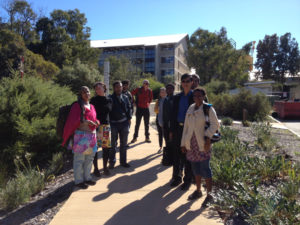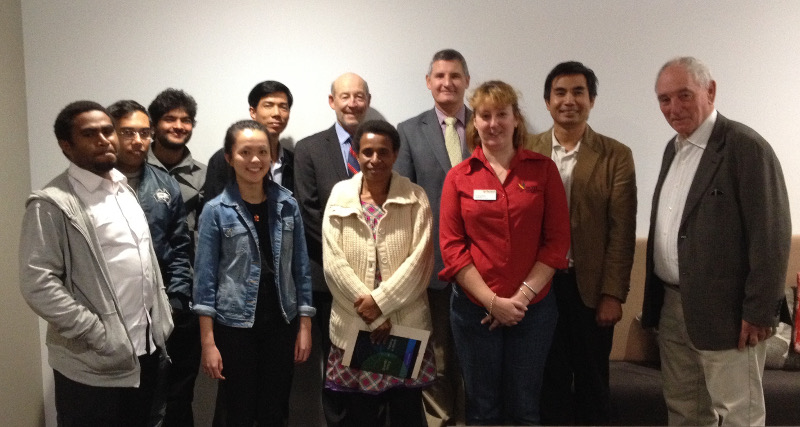

Pest Threats and Invasions
May 18, 2015
Biological security (biosecurity) is the protection of people, plants, animals and the environment and economy from pests and diseases. Last year we had a Rural Press Club event in Victoria and Dr Tony Gregson our Victorian Committee Chair and Plant Health Australia Chair noted that biosecurity threats would be a bigger problem for Australian agriculture with increasing urbanisation and rising travel opportunities for the middle class.
There are significant benefits to both Australia and developing countries to improved biosecurity.
Establishing networks in countries where diseases are present that are not currently in Australia, enables Australian researchers to gain understanding of the disease without risk of introducing it here. Such information is crucial for early and accurate detection of biosecurity threats and builds Australia’s capacity to deal with exotic disease outbreaks.
A number of our State Committees support training in biosecurity for this reason.

Biosecurity training supported by the Crawford Fund’s NSW, NT and WA Committees has recently wrapped up at Murdoch University, WA. The short course for PNG, Lao and Cambodian Biosecurity Officials consisted of lectures, discussions and a field trip to quarantine facilities and involved biosecurity officials from Asia-Pacific countries. Using real-life examples and case studies, the trainees learned about preparedness, surveillance, diagnostics, emergency response and management of pests and diseases.
The broad aims of this course were:
- To introduce biosecurity in the context of International Obligations for the protection of plant, animal (including marine/aquatic) and human health;
- To provide information on the Australian biosecurity system and the biosecurity continuum – pre-border, border and post-border;
- To develop an understanding of the multidisciplinary activities that underpin biosecurity;
- To develop knowledge of the impact that biosecurity has at all levels, from Government and Industry through to the individual.
Dr Kirsty Bayliss, Academic Chair of Biosecurity and Food Security at Murdoch University, reported these quotes from participants at the conclusion of the training:
“Field trip and various guest lectures really provided hands on information.”
“I think all the topics covered are of importance and very useful.”
“Will help us improve biosecurity level in our country as well as in our workplaces.”
“Excellent logical progression of topics, building on what was covered.”
“All lectures, information and site visit appropriate and well arranged.”
No doubt biosecurity will remain a strong focus of future Crawford Fund training. Our work continues within the ACIAR’s Food Security Centre project with Australia’s Plant Biosecurity Cooperative Research Centre and African partners to develop a cadre of ‘change champions’ for improved biosecurity in Africa.

Front row – Sharon, Monica, Kirsty




